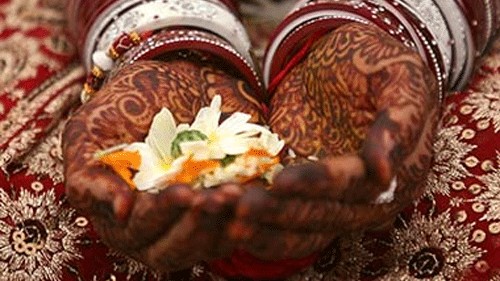
The court was hearing a petition that contended that the complainant, who identified herself as the wife of Akhilesh Keshari, was not a legally valid wife as he had not obtained a divorce from his first wife.
Credit: Reuters File Photo
Prayagraj (UP): The Allahabad High Court has ruled that a complaint under Indian Penal Code section 498A, pertaining to an offence of cruelty by husband or his relatives against wife, is not maintainable against a husband in the instance of a 'second wife'.
However, in such cases, the Dowry Prohibition Act, 1961, may be used if there is a demand of dowry, it said.
The court was hearing a petition that contended that the complainant, who identified herself as the wife of Akhilesh Keshari, was not a legally valid wife as he had not obtained a divorce from his first wife.
Hence, the prosecution under Indian Penal Code (IPC) section 498A and section 3/4 of the Dowry Prohibition Act against the husband is not maintainable in the instance of the woman claiming to be 'second wife', the plea stated.
Justice Arun Kumar Singh Deshwal, while giving the ruling on March 28, partly allowed the petition filed by Keshari and three others.
Keshari and his family members had challenged the chargesheet as well as summoning order of the court in connection with a case under IPC sections 498A, 323, 504 and 506, and section 3/4 of the Dowry Prohibition (DP) Act. Their petition claimed that the proceedings initiated against them were unlawful.
The counsel appearing for the State argued that for IPC section 498A as well as section 3/4 of the DP Act, strict interpretation regarding the validity of marriage should not be made and liberal consideration should be given to those persons who contracted for marriage and are cohabiting together.
The court relied upon a Supreme Court judgment in which it was held that if the marriage itself is null and void, then prosecution under IPC section 498A against the husband is not maintainable in the instance of the alleged wife filing a case.
The high court said that though a second marriage by a Hindu is null and void and therefore not prosecutable under IPC section 498A, the DP Act could still come into play.
Under section 3/4 of the DP Act prosecution is maintainable as the main ingredients of the section is giving, taking or demanding dowry by any person and dowry demanded before marriage is also punishable, it said.